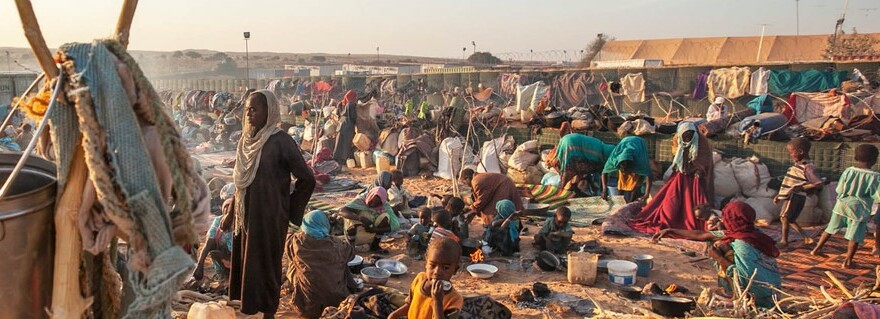The displaced Sudanese who fled from El-Fasher, the capital of North Darfur State, to Shagra South have decried the deteriorating security situation and the lack of food and basic services.
The area of Shagra is located 10 kilometers west of El-Fasher, and hosts hundreds of thousands of people displaced from across Darfur.
Speaking to Radio Tamazuj on Thursday, a member of the Emergency Room in Shagra South, Hamdoun Ibrahim Abu Al-Bashar, confirmed the worsening situation of the civilians.
“The Shagra area is witnessing an influx of thousands of displaced persons fleeing the fighting in El-Fasher, living under extremely complex conditions that require urgent intervention from international organizations,” he said.
He added: “The displaced persons in Shagra are living in great fear due to the sporadic shelling that has reached the outskirts of the area, resulting in the injury of three civilians.”
The supervisor of the displaced in the Old Market Camp, Mohammed Abdel-Rahman, told Radio Tamazuj that the camp accommodates more than 500 families, totaling 35,000 displaced persons who fled from the villages of El-Fasher.
“The displaced persons in the camp are suffering from a lack of water, food and shelter materials, and are living in extremely complex humanitarian conditions,” he said.
One of the displaced, Naglaa Fathi Abdel-Basit, who fled from El-Fasher, confirmed to Radio Tamazuj their great suffering inside the camp.
She said: “We are suffering from everything, from the lack of water, food and toilets,” adding that they have to queue for everything including the bathrooms, due to the overcrowding in the camp.
Despite the dire conditions, Naglaa pointed out that the displaced lived on the principle of mutual support for each other.
El Fasher, the only capital in Darfur not controlled by the Rapid Support Forces (RSF), is home to nearly 1.5 million people, including residents and internally displaced persons who had found refuge there.
Since May 10, the city has been the scene of fierce fighting between the Sudanese Armed Forces (SAF), supported by some of their allied armed movements, and the Rapid Support Forces (RSF). The fighting has caused numerous civilian casualties and serious damage to homes and civilian infrastructure.
Since the end of last year, the RSF has taken control of four of the five states in the Darfur region: South, West, Central and East Darfur.




